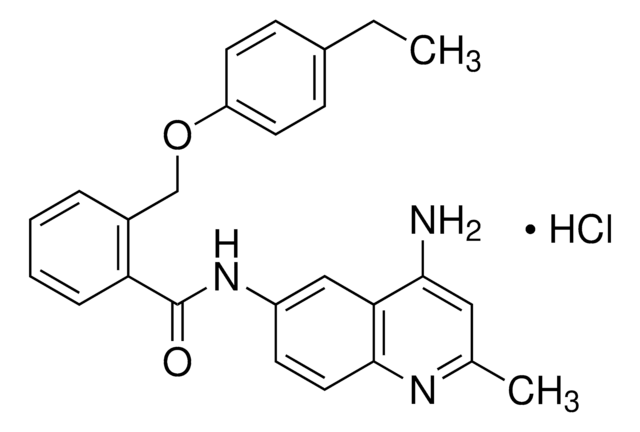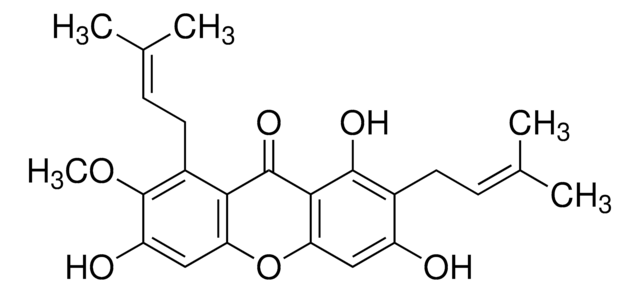SRP4915
Vaspin human
recombinant, expressed in E. coli, ≥90% (SDS-PAGE), ≥90% (HPLC)
Synonym(s):
OL-64, SERPINA12, Serpin A12 precursor, Vaspin, Visceral adipose tissue- derived serine protease inhibitor, Visceral adipose-specific serpin
About This Item
Recommended Products
biological source
human
recombinant
expressed in E. coli
Assay
≥90% (HPLC)
≥90% (SDS-PAGE)
form
lyophilized powder
mol wt
~47.0 kDa
packaging
pkg of 25 μg
storage condition
avoid repeated freeze/thaw cycles
impurities
endotoxin, tested
NCBI accession no.
shipped in
dry ice
storage temp.
−70°C
Gene Information
human ... SPA12(145264)
General description
Biochem/physiol Actions
Physical form
Reconstitution
Storage Class Code
13 - Non Combustible Solids
WGK
nwg
Regulatory Listings
Regulatory Listings are mainly provided for chemical products. Only limited information can be provided here for non-chemical products. No entry means none of the components are listed. It is the user’s obligation to ensure the safe and legal use of the product.
JAN Code
SRP4915-25UG:
Certificates of Analysis (COA)
Search for Certificates of Analysis (COA) by entering the products Lot/Batch Number. Lot and Batch Numbers can be found on a product’s label following the words ‘Lot’ or ‘Batch’.
Already Own This Product?
Find documentation for the products that you have recently purchased in the Document Library.
Our team of scientists has experience in all areas of research including Life Science, Material Science, Chemical Synthesis, Chromatography, Analytical and many others.
Contact Technical Service








